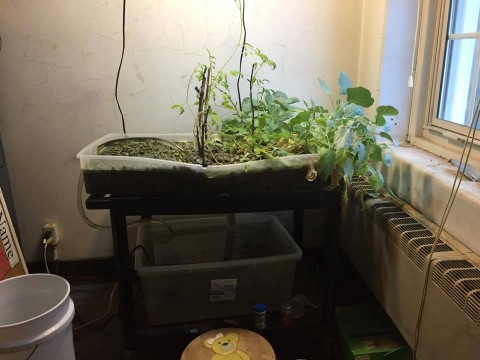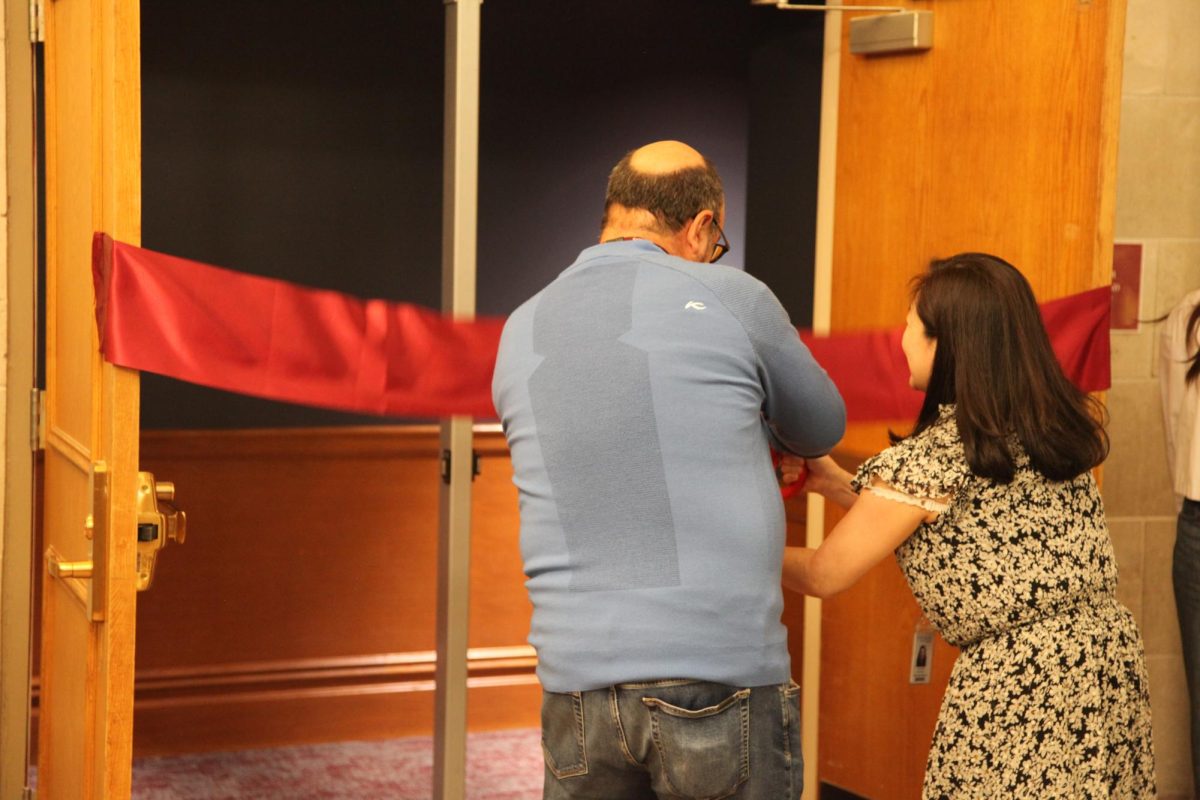In a continuing effort to increase environmental sustainability at Scarsdale High School, two students have found a way to grow plants in a quicker and more environmentally friendly manner. Alex Reisel ’16 and Myles Kornfeld ’16 have been using aquaponics in order to grow alfalfa, arugula, collard greens, and tomatoes. Aquaponics is the process of growing plants, but using fish excrement as opposed to soil in order to provide nutrients to the plant.
The potential environmental benefits from aquaponics over regular plant growth are numerous. These include a faster growing time, eight weeks as opposed to ten, no need to replace the soil, more protection from pests, and accessibility for the everyday plant grower. “Aquaponics can also be scaled very easily, meaning that this type of setup can be built for practically any stable situation, such as in a home, an office, a school, or by farms,” explained Kornfeld.
The two juniors have been working on this project since the end of 2014. At the moment, they have not built the official Aquaponics tank, but rather a draft known as “The Proof of Concept.” “Most people don’t even know that this room exists, but in the Auto Shop, Alex and I have successfully built a functioning aquaponics setup… It [The Proof of Concept] has been operating since February 2015, but we started working on this…in December,” shared Kornfeld. However, before anything could come to fruition, they had to seek approval from the administration. “The working aquaponics setup that is currently in the autoshop was a proof of concept, meaning that we created this setup to show Mr. Bonamo that we were capable of building a system, so that he (Bonamo) knew that this would be possible, and that Alex and I would be able to build and maintain a bigger version,” commented Kornfeld.

None of this would have been possible without the great partnership between the two students. “Working with Alex was great…we would often disagree about how to build the system, and this would lead to arguments…with the best intentions in mind. If we both had the same ideas, then we would not have had this type of constructive arguing that would lead us to have a more efficient aquaponics system,” said Kornfeld. The chemistry was clearly mutual, as Alex relied upon Myles’ perseverance and tenacity in order see the project through. “He’s organized, resourceful and does a lot of the paperwork and budgeting that the project would have failed without. If we didn’t have Myles breaking his back scheduling meetings, creating presentations and working out details for getting supplies and adult approval, we never would have made it past the drawing board,” noted Reisel.
While only the “proof concept” is on display now, the official aquaponics tank should be on display when school starts and completely functional within about three weeks. Past that, the boys already have a plan in place in order to continue this project long into the future. “If we did not have a club to secure the future of this project, then it probably would have never been lifted off the ground. Project Green, however, was kind enough to make sure that the future of this project is secure. Alex and I will most likely take care of the system for our junior and senior years, and during that time, we will teach the members of Project Green how to be able to take care of the system once we graduate,” explained Kornfeld. Whomever takes over the project, they will certainly make the aquaponics tank a weapon in SHS’ arsenal of environmentally friendly initiatives for years to come.
By Ezra Lerner











